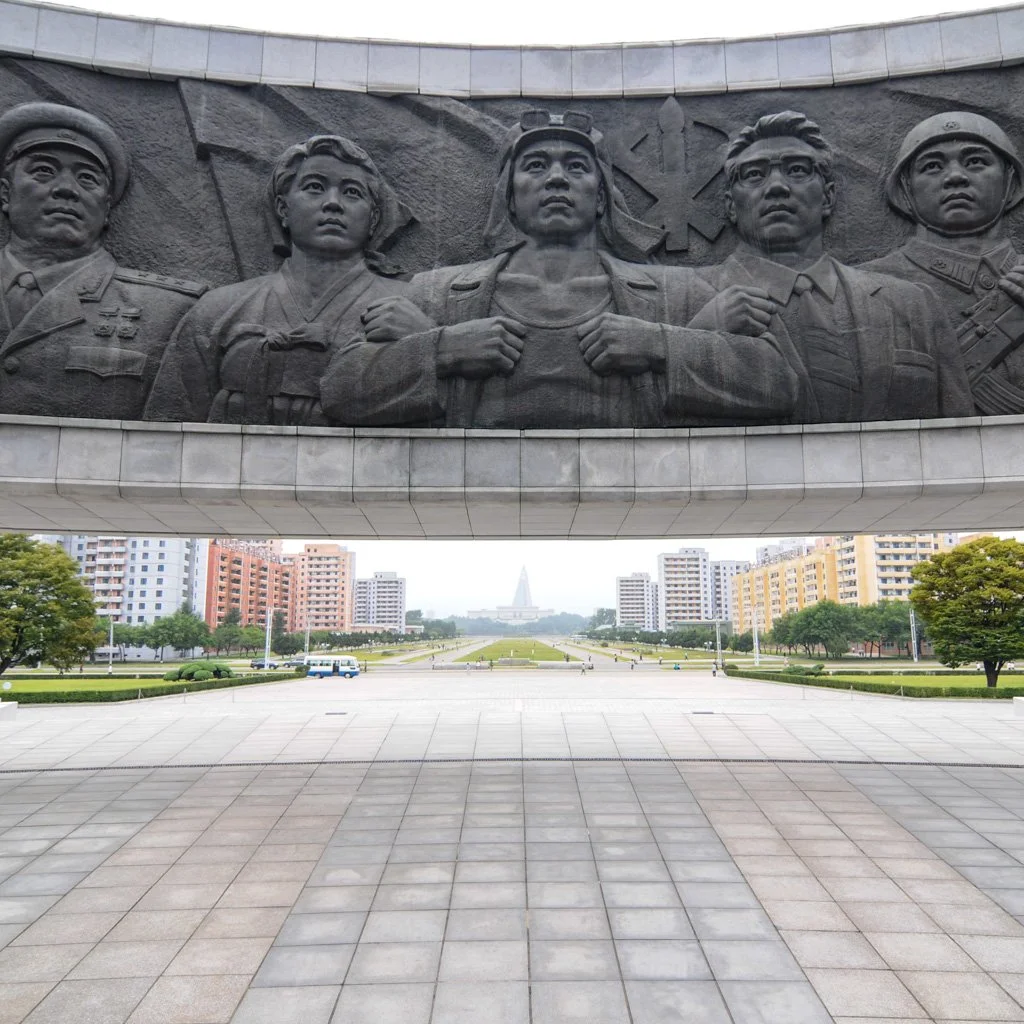Recently, Professor Andrei Lankov wrote an article for Al Jazeera, focused on the not-yet-fully-clear "May 30th Measures", promulgated by the Central Committee of the Korean Worker's Party. This policy remains not fully articulated to outside observers - it has come out in dribs and drabs. Recent commentary suggests it could be significant, though, with a change in farming work unit size (down to 'family size') and a shift to the work unit being able to keep the majority of its production: 60%. This is up from a 30%.
These two details were featured in a September report by Hyundai Economic Research Institute, generating a bit of South Korean media interest by estimating that GDP growth could be 7.5% in the year following implementation of the measures.
Graph from Hyundai Research Institute report
Also this week a long report by the Kyungnam University's Institute of Far Eastern Studies titled "Conditions on the Korean Peninsula: Evaluation of 2014 and Prospects for 2015" was released, in Korean. This report is quite bullish on the May 30th measures. ("5.30 measures", as rendered in Korean.)
There doesn't appear to be an English version on the way, so here are some takeaways:
"Economically, by implementing the regional introduction 6.28 and 5.30 measures as a series of economic improvement measures to provide a ‘market economy’ system of their own, we assess that there is a desire to move towards a rudimentary standard for opening and reform." (경제적으로 ‘6.28 및 5.30 조치’ 등 일련의 경제개선 조치를 취하면 서 자신들만의 ‘시장경제’ 시스템을 지역별로 도입해 초보적 수준 의 개혁․개방으로 나아가고자 하는 것으로 평가)p. 6-7
"The 6.28 and 5.30 Measures have the goal of raising production standards through expanding autonomy and incentives for farms, factories, industrial plants etc." (6.28 및 5.30 조치’는 농장과 공장․기업소 등 생산단위의 자율성 및 인센티브 확대를 통해 생산수준을 향상시키려는 것이 목적) p.7
"The main features of the domestic economic policy of the Kim Jong Un era is limited economic reform through tolerance towards markets and ‘our style economic management methods’ (i.e. the 6.28 and 5.30 measures)." 김정은 시대 대내 경제정책의 주요 내용은 시장에 대한 관용과 ‘우리식 경제관리방법(6.28 및 5.30 조치)’을 통한 제한적 경제개혁 등임. p. 19
They note it is a ‘limited reform’, writing that “through the so-called 6.28 and 5.30 measures they plan to run a new improved economic management measures step-by-step and gradually." (이른바 ‘6.28 및 5.30 조치’를 통한 새로운 경제관리개선 조치는 느슨하지만 점진적이고 단계적으로 진행) p. 19
Their positive assessment is that: "What is known about the contents of these measures so far is that they are a step further than the 7.1 measures." (이러한 조치는 지금까지 알려진 내용만으로도 7·1조치보다 진일 보한 것으로 평가) p. 19
In terms of their international political-economic position: "while they won’t give up their nuclear weapons, they will push on with diversifying foreign relations in order to build a stable external environment that is needed for attracting foreign investment for economic construction." (북한은 핵을 포기하지 않으면서 경제건설에 필요한 외부투자 유치를 위한 안정적 대외환경 조성을 위해 외교 다변화 추진)
IFES does remain clear-eyed at the end of the day, noting that "<North Korea> will maintain efforts to attract foreign investment into the already named special zones and economic development areas, but the nuclear and human rights issues mean real success is doubtful." (旣 공표한 특구와 경제개발구 등에 외자를 유치하기 위한 노력을 지속하겠지만, 핵과 인권 문제 등으로 실질적 성과를 거둘지는 미지수)p. 29
The 6.28 measures refer to an economic management system declared in 2012. The 7.1 measures refer to not-dissimilar experiments from 2002, largely rolled back a few years later.









